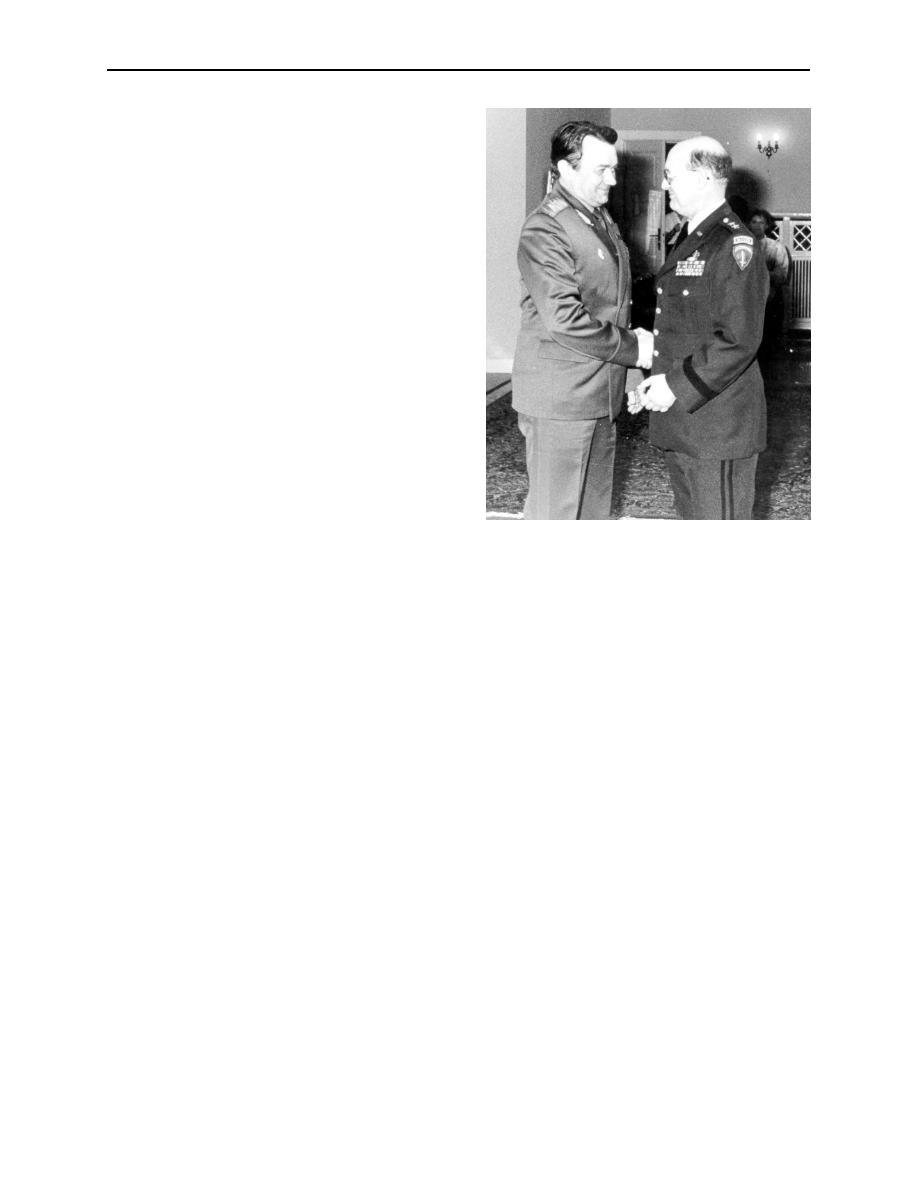
________________________________________________________________________Richard S. Kem
the division and their noncommissioned
officers who took them on tours of the
barracks and briefed them. The
noncommissioned officers did everything
and the officers stood back.
We had the same delegation matchups we
did before, and so we went along and
watched. Then they went into the unit dining
facility for lunch. Where at Wunsdorf we
had always eaten with them in our tight
group, we had our soldiers at the mess with
them. There was a sergeant in charge of each
table.
Since their Chief of Staff, Major General
Fursin, was there, and I was his counterpart,
the two of us went to the same table, but
there was also a captain, a sergeant, a
corporal, and so forth. Our whole principle
was to let the troops talk to them and get an
General Kem (right), Chief of Staff,
interaction.
U.S. Army Europe, and Major
General Fursin, Chief of Staff of the
Our core delegation was there to try to
Group of Soviet Forces Germany, at
facilitate a dialogue between our soldiers and
a 1989 celebration of the meeting of
them. Our folks did very well. Our soldiers
American and Soviet forces on the
asked the questions, "Well, what do you do
Elbe River in 1945.
about this in your Army?" That sort of thing.
It worked very well.
Then we went out on the range and saw our people operate on a weapons range right on the
kaserne. Schweinfurt has one of our better facilities for training. Then we moved to the local
training area and watched a combined arms exercise using MILES [multiple integrated laser
engagement simulation system], the laser designator that we fit our weapons with so they can
record training "kills." The scenario had a Warsaw Pact tankinfantry company attacking and
being taken under fire by a U.S. tankinfantry platoon in hull-down positions dug into the
hillside and with a minefield in front.
Afterwards, we brought all the tanks and vehicles up and let General Snetkov and his folks
walk down and talk to our crews. The rationale was there, again, to see the strength of our
people. I mean, the well-trained, rock-hard element of our capabilities.
I took their chief up to one tank crew and let him do the talking--we had an interpreter there.
He asked the tank commander, "How long have you been in the Army?" "Well, Sir, fourteen
years." "How long have you been over here in this outfit?" "Well, four years, Sir."
427



 Previous Page
Previous Page
